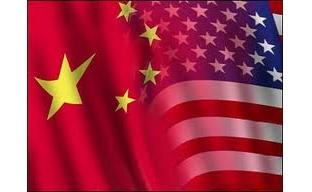
The United States has passed a new law as a part of a large spending bill on Thursday, March 28th that confines government organizations from purchasing Chinese technology. As a result of this provision tensions between the two countries have once again increase as China strongly opposed the new law for government purchasing. Opposing the new provision, China said that the measure will badly affect the economic ties between the two countries, as the law requires the Department of Justice, the Commerce Department and NASA to seek advice from federal law enforcement before obtaining IT systems from China. The new US law reportedly was purposed to reduce the danger of cyber-espionage, but as Reuters reported, China says it could have severe consequences.
Talking to Chinese media last Saturday, Spokesperson for the Ministry of Commerce, Shen Danyang said that, “This will directly impact partnerships of Chinese enterprises and American business as they conduct regular trade. This abuse of so-called national security measures is unfair to Chinese enterprises, and extends the discriminatory practice of presumption of guilt. This severely damages mutual trust between the US and China.” The spokesperson also said that the bill “sends a very wrong signal.”
The US has passed the provision at a very tense time, as the relationship between Washington and Beijing is already very uptight because last month Mandiant, a security firm, submitted a report in which the organization has held China responsible for the series of cyber attacks on high profile US companies such as IBM, Microsoft, Facebook, Apple, Twitter and more. On top of this the 2012 Congressional report has claimed that China-based manufacturers ZTE and Huawei are serious threats to national security.
On the other hand, Chinese authorities have always denied American accusations of cyber attacks and hacking by describing them as baseless claims. To counter these accusations China launched counter-accusations last month, when it blamed the US for most of the cyber attacks on its armed forces websites.
In addition to this the spokesperson of Commerce Ministry has said that the US should abolish it’s new law but Stewart Baker, who is a lawyer, says that it is doubtful that the government will eliminate it from future legislation. “Once a provision ends up in the appropriations bill… it tends to stay there unless there’s a good reason to take it out,” says Baker in an interview with Reuters.
Shen’s comments were not different from Chinese foreign ministry spokesman Hong Lei’s statements, who said that the law “uses Internet security as an excuse to take discriminatory steps against Chinese companies.”
Source: TheVerge
Photo: Whatdoesitmean